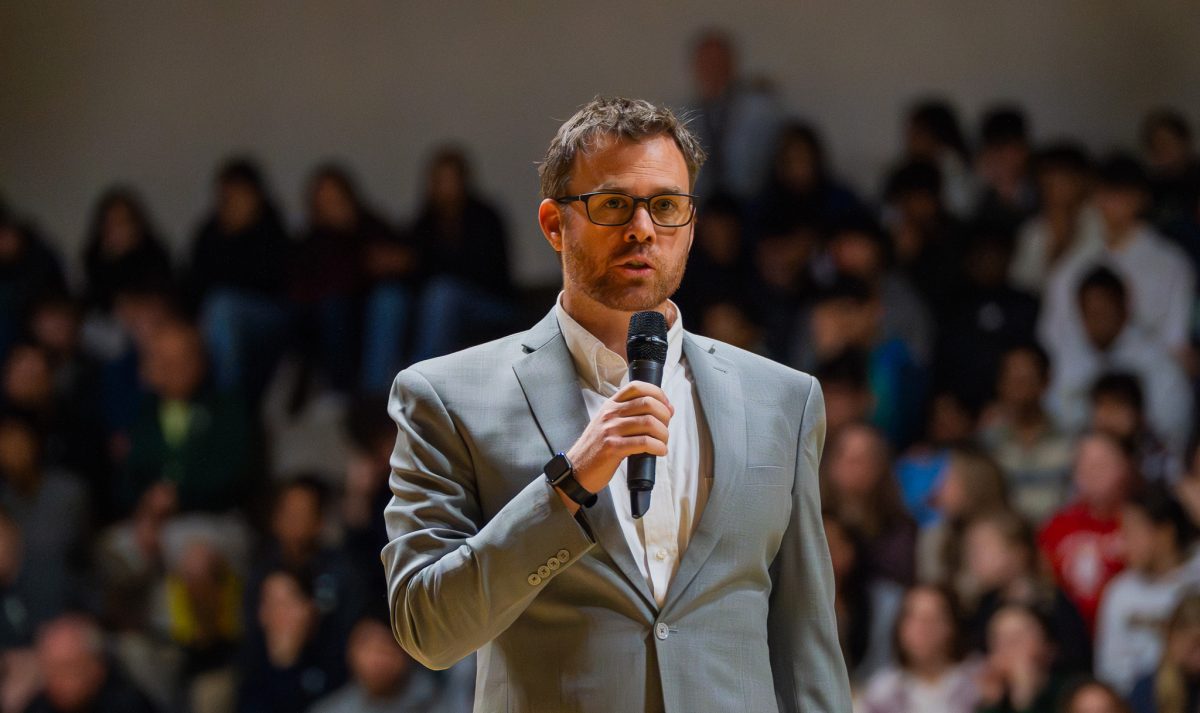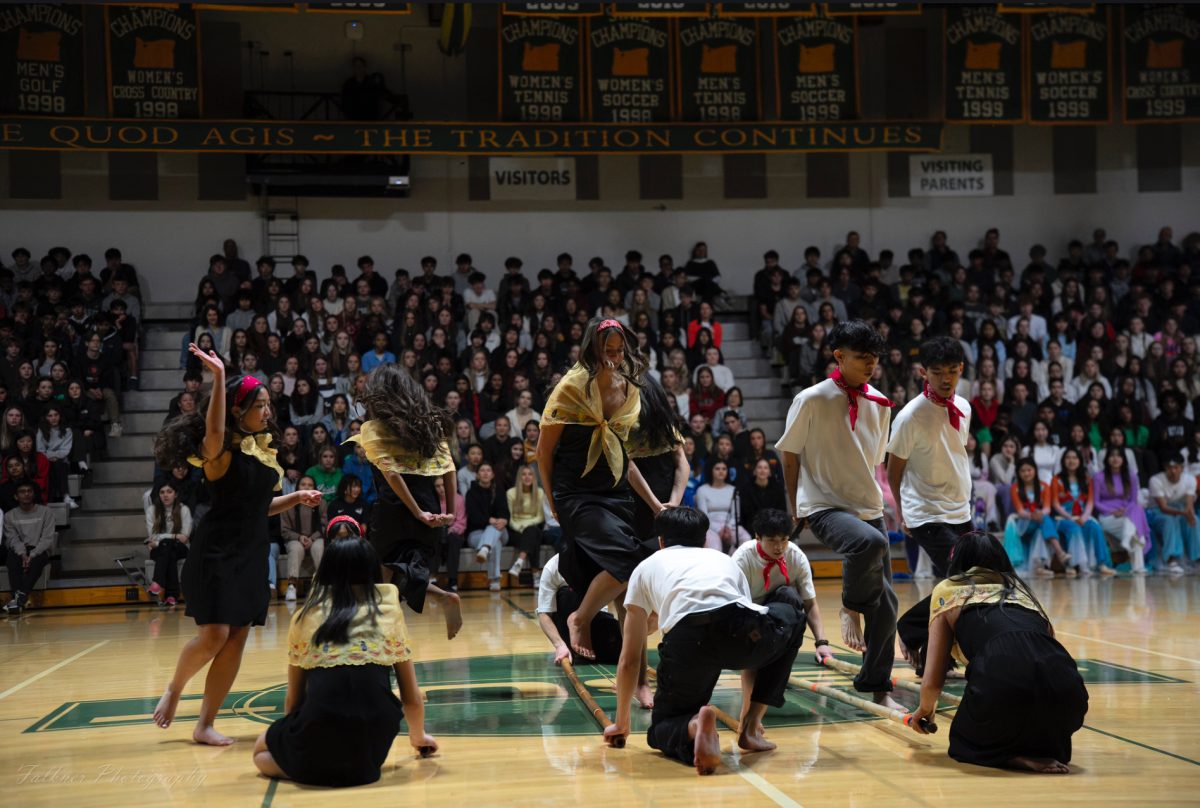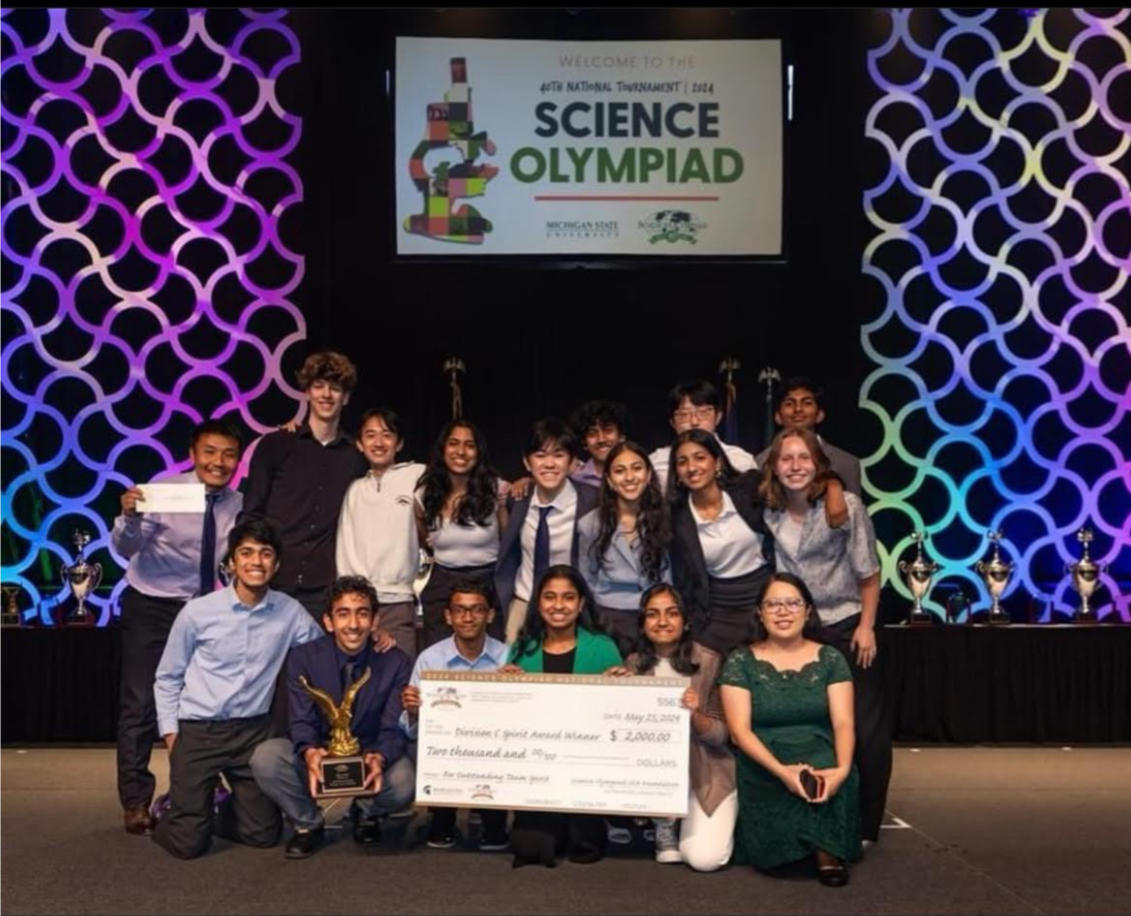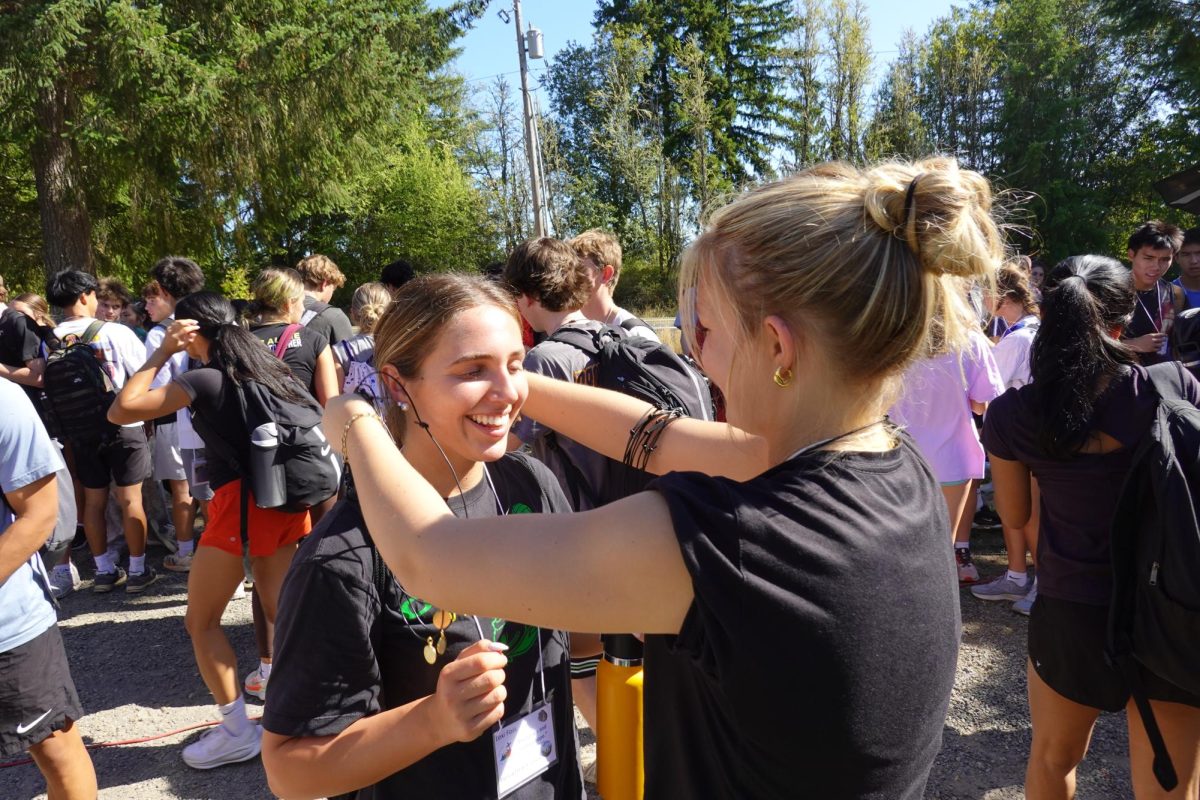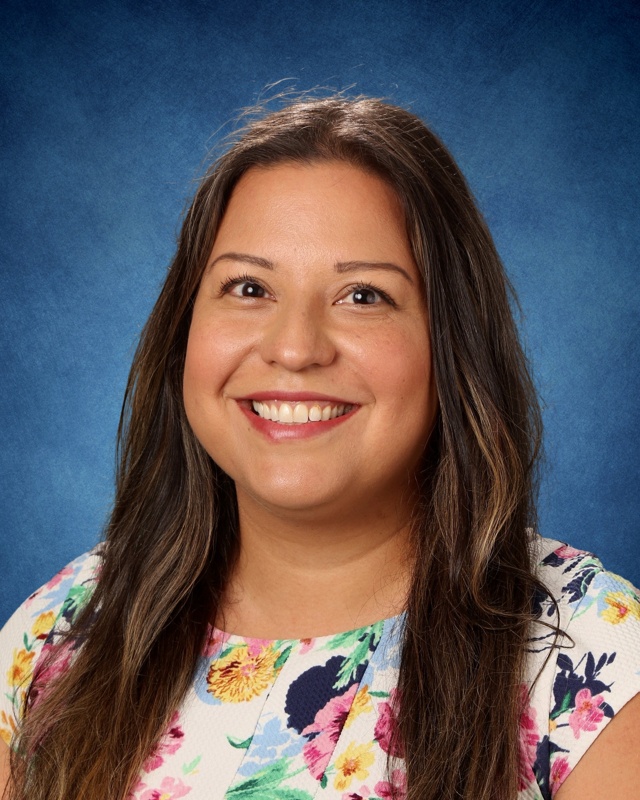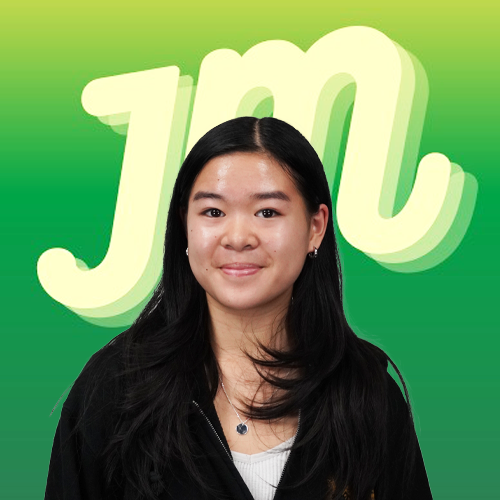MARCH 13–After numerous workshops, a keynote speech, and activities centered around the theme AI, on the third day of Social Justice week, students heard from keynote speaker Spencer Wagner.
Utilizing his background as a computer science teacher from Regis Jesuit High School in Denver, Colorado, Wagner is leading the charge to guide Jesuit educators on using AI ethically and responsibly in the classroom.
Wagner began by sharing his experience writing a 50-page short story utilizing ChatGPT to showcase the capabilities of modern AI language models.
“I used AI to write a book to show the potential power of this tool and how much it would impact my life and the lives of my students… I said ‘this is the history, this is why I did this, this is where I think the world is going,” said Wagner. “My purpose was to assuage the fears of my fellow teachers, and to empower people to be more comfortable with AI. It invites you to think about how education could be different when we suddenly have a personalized tool in the hands of every single student in every classroom.”
Tracing the rapid evolution of AI, Wagner highlighted major AI milestones such as Google DeepMind’s AlphaGo defeating Go champion Lee Sedol in 2016– a feat accomplished 20 years sooner than expected. He revealed that AI revolutionized strategies by configuring games such as Go and chess into probability maximization problems, by analyzing trillions of previous scenarios.
Additionally, AI has catalyzed major scientific advancements such as protein folding, allowing for the invention of drugs and biological pharmaceutical solutions that hold the potential to build things humanity has never previously considered.
However, citing Twitter’s auto crop algorithm, Wagner displayed how flawed training data leads to the perpetuation of racial and discriminatory biases. Designed to analyze faces inside of pictures, and pick the one to be on the cover, users found that sixty to seventy percent of the time, white faces would be picked over non white faces because the algorithm contained a data set that didn’t represent everyone at large.
“We think of machines as unbiased entities, we don’t like to consider them extensions of who we are. But because of training methods, we don’t see that humanness in these machines,” said Wagner.
With this unchecked power in the hands of big tech companies such as Google, Wagner stressed the importance of ethical oversight.
“Can you imagine the power of one individual with this kind of technology? Who gets to make these decisions? Are there ethical experts out there? When every single year the technology that you use is 10 times stronger, what does your world start to look like?” asked Wagner.
To navigate this complex environment, Wagner advocated for reforming education to prioritize transferable skills such as creativity, rapid learning, and adaptability over a focus on coding.
“You might have to say goodbye to some of the things you get comfortable learning and start picking up new ways of learning or new topics to learn. Coding was never the source of value, problem solving is a core skill, discipline and precision,” said Wagner.
Additionally, leader of the Oregon Encode Justice (a youth movement centered on AI), and senior Maansi Singh spoke on the use of AI’s role in the classroom.
“There are definitely quite a few benefits, and many are optimistic that if we use these tools at a minimum to speed up mundane tasks then perhaps teachers can spend more time building in-person connections with their students and it also might encourage new people to enter the teaching space knowing they have a helping hand,” said Singh.
However, with these benefits, also comes the risks of misinformation, as tools such as Bard and Claude AI still exhibit “AI hallucinations” where false information is presented as facts.
“There’s a concern about over reliance or the wrong information being taught. This can also have more serious concerns in certain cases. If you have a history class that is supposed to teach about the diversity of cultures in a certain region but the AI’s response doesn’t reflect that knowledge, it can be discriminatory and misleading,” said Singh. “Rather than just jumping at the first AI tool educators hear about, educators need to experiment with different AI tools to find ones that are most reliable and fact-checking from a human perspective.”
Looking towards the future, Wagner advocated for an “egalitarian utopia” where AI and humans coexist in a society where resources are accurately distributed and AI helps to eliminate poverty and disease and inequality.
“I would like us to use these tools for good. I would like you to be the people who do so. You’ve been told that you can find out about things. And I would ask you to use discernment as to where you can use AI tools for the good,” said Wagner.
Echoing this call, Sing expressed cautious optimism on the subject.
“Within our school, we are fortunate to have members of administration looking into how AI should be incorporated in a Jesuit education… Oregon is one of only eight states with official K-12 guidelines for generative AI. However, there’s still a concern about the digital equity gap as certain schools prioritize new AI tools over foundational computer science education”
Underscoring the magnitude of this technology capability, Wagner encouraged introspection to ensure that these technologies serve the common good and protect dignity in a way that aligns with the greater glory of God.
“Educate the world that AI tools exist… because in the coming years, you’re going to be the one at conferences. You’re going to be the one working as interns, and getting jobs to make a difference in the future… Plan to adapt to an ever changing world,” said Wagner.
Buttressing this perspective, Singh aims to relieve student concerns regarding this complex topic.
“I think it’s important for students to separate themselves from those long term fears and understand that current AI systems are not yet equipped to have such devastating impacts. Rather, we should be focusing on our relationship with the systems we’re already using and how they affect the people around us,” said Singh. “Whatever path you choose to pursue, be aware about who new technologies are hurting and who they are helping”.



